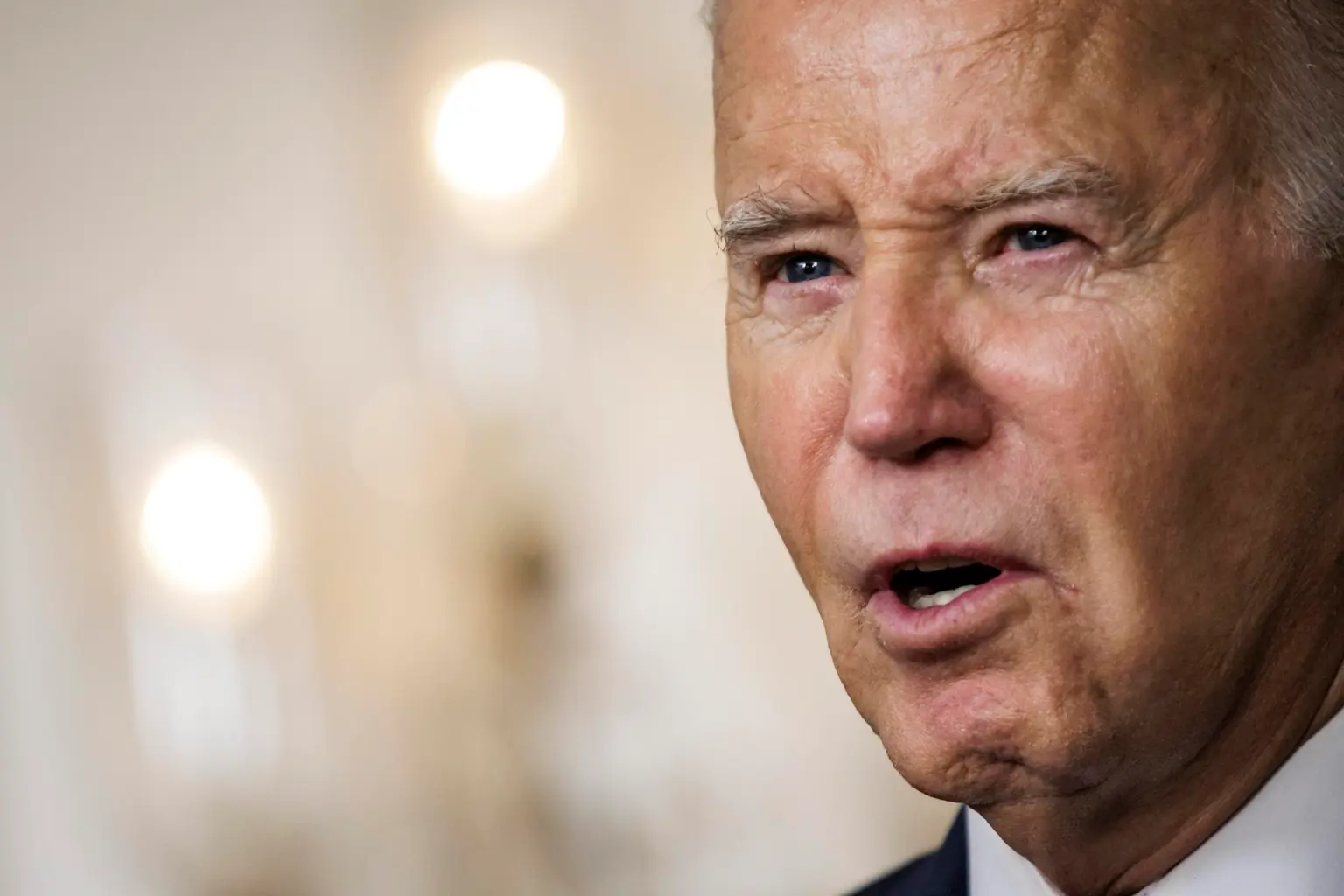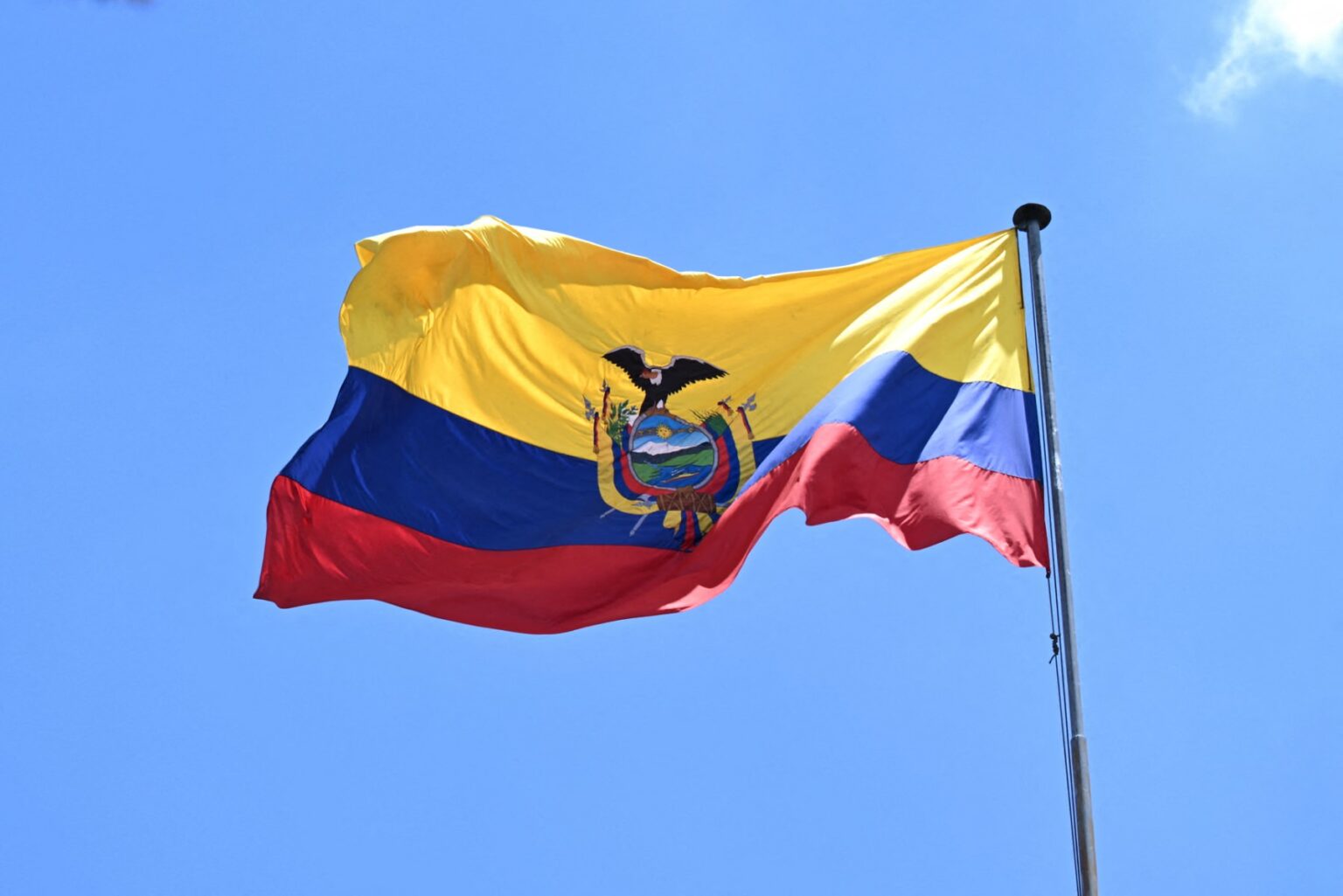International
The US accuses Russia of using its nationals as a “exchange currency”

As part of the anniversary of the arrest in Russia of the American journalist of The Wall Street Journal, Evan Gershkovich, the United States accused Moscow on Friday of using its citizens as a “exchange currency.”
“We will continue to denounce and impose costs for Russia’s atrocious attempts to use Americans as a bargaining chip,” President Joe Biden said in a statement.
Gershkovich, 33, was arrested at the end of March 2023 in Yekaterinburg, capital of the Urals, and on April 7 he was formally accused of espionage by the Federal Security Service (FSB, former KGB).
According to the FSB, “he was on behalf of the American side, he compiled secret information about the activities of one of the companies of the Russian military industrial complex.”
This week, the Russian Justice extended his arrest until June 30. By then, he will be in pretrial detention for one year and three months.
Biden said that the United States will continue to work “every day to achieve his release” and will continue to remain “firm” against all those who “seek to attack the press or attack journalists, the pillars of free society.”
“Journalism is not a crime and Evan went to Russia to do his job as a reporter, risking his safety to shed light on the truth about Russia’s brutal aggression against Ukraine,” he said.
In another similar statement, the Secretary of State, Antony Blinken, stated that to date “Russia has not provided any proof of irregularities” because “Evan did nothing wrong.”
“Journalism is not a crime. In the year since Evan’s unjust arrest, Russia’s already restrictive media landscape has become more oppressive, with a continuous attack on independent voices that point to any form of dissent,” he said.
Blinken recalled Paul Whelan, a former Marine infantryman, who was arrested in Moscow at the end of 2018 and sentenced for espionage to 16 years in prison in 2020.
The United States “continues to be committed to bringing Evan and Paul home,” said the head of American diplomacy.
“People are not a currency. Russia should put an end to its practice of arbitrarily detaining people for purposes of political influence and should immediately release Evan and Paul,” he said.
The Wall Street Journal published this Friday in white part of the cover of its printed edition to remember its correspondent in Russia, Evan Gershkovich.
About the blank space the headline ‘Your story should be here’ and that accompanies a note about what the journalist has not been able to enjoy on a personal and professional level during the year in which he has been in prison.
The digital edition publishes instead of the blank space a photo of the journalist with the same article but under the title of ‘Evan Gershkovich, a year stolen in a Russian prison’, which also includes biographical data.
The Wall Street Journal also published other articles about the danger faced by journalists.
“Evan Gershkovich was supposed to be with his friends in Berlin the first week of April 2023,” the report begins and highlights the plans that the young reporter had to share with a group of journalist friends.
“It was the beginning of his stolen year,” the note adds.
International
Colombia to Send High-Level Delegation to Ecuador to Ease Trade Tensions

Colombia’s Ministry of Foreign Affairs confirmed on Friday that, at the instruction of President Gustavo Petro, a high-level delegation will travel to Ecuador in an effort to normalize bilateral relations, which have deteriorated following the imposition of reciprocal tariffs.
“In line with Colombia’s policy of good neighborliness and the spirit of cooperation and integration that guides its foreign policy,” the Foreign Ministry said in a statement, adding that the delegation will be led by Foreign Minister Rosa Villavicencio and Defense Minister Pedro Sánchez.
“Following instructions from the Presidency of the Republic, and as has been publicly reiterated, the Colombian delegation expects to reaffirm Colombia’s offer of support to the Republic of Ecuador to strengthen control over phenomena stemming from transnational organized crime,” the statement said.
The Foreign Ministry noted that the delegation will attend the meeting with a full willingness to engage in dialogue and to seek concrete solutions to the unilateral measures that have affected the longstanding relationship between the two neighboring countries.
Trade tensions between Ecuador and Colombia escalated on January 21, when Ecuadorian President Daniel Noboaimposed a 30% tariff on Colombian products, citing a lack of cooperation in anti-drug efforts. Colombia responded with similar measures and the suspension of energy exports, while Ecuador increased transportation costs for Colombian crude oil.
Business associations in both countries have warned that the dispute is harming both economies and have called on the governments to resolve their differences through dialogue.
International
Super Bowl Halftime Show Puts Bad Bunny—and Immigration Politics—Back in the Spotlight

The long-standing argument that sports and politics should not mix may be put to the test on Sunday during the Super Bowl halftime show, which will be headlined by Puerto Rican superstar Bad Bunny, a choice that has sparked backlash from segments of the U.S. right wing.
Just one week after his headline-making appearance at the Grammy Awards—where he sharply criticized the United States’ anti-immigration policies—Bad Bunny will once again take center stage on the global spotlight with his performance at the NFL final in Santa Clara, California.
Beyond the expectations surrounding the show itself, speculation has grown over whether the artist could again use the platform to protest policies associated with the administration of former President Donald Trump, in front of an audience expected to exceed 120 million viewers in the United States alone.
In fact, one of the most popular Super Bowl prop bets this year revolves around whether the Puerto Rican singer will deliver a direct message against ICE (U.S. Immigration and Customs Enforcement), similar to the one he delivered at the Grammys last Sunday.
While few expect Bad Bunny to repeat such a pointed statement, the mere speculation highlights the delicate balance the NFL must manage during the most-watched broadcast of the year.
The world’s most powerful sports league has drawn criticism from the MAGA movement since announcing in September that Bad Bunny would headline a halftime show largely performed in Spanish.
Trump himself declined to attend the matchup between the New England Patriots and the Seattle Seahawks, despite having made history last year as the first sitting U.S. president to attend a Super Bowl. He described the musical lineup—which also includes outspoken critics such as Green Day—as “a terrible choice” that would “sow hatred.” In response, his supporters have organized an alternative event dubbed the “All-American Halftime Show,” featuring like-minded artists such as Kid Rock.
International
Venezuela Debates Broad Amnesty Law Covering 27 Years of Chavismo

Venezuela’s Parliament began debating on Thursday a sweeping amnesty bill that would cover the 27 years of Chavismo in power, while explicitly excluding serious human rights violations and crimes against humanity.
The proposed legislation, titled the “Amnesty Law for Democratic Coexistence,” was introduced by interim President Delcy Rodríguez, who assumed power following the capture of Nicolás Maduro during a U.S. military operation.
The legislative session was convened for Thursday afternoon, with lawmakers holding an initial discussion focused on the general principles of the bill. This phase precedes a consultation process with civil society, after which the proposal will move to a final debate examining each article individually.
According to a draft of the bill obtained by AFP, the amnesty would apply to individuals accused of crimes such as “treason,” “terrorism,” and “incitement to hatred,” charges that were frequently brought against political prisoners over the past decades. The scope also includes offenses ranging from acts of rebellion to punishments imposed for social media posts or messages sent through private messaging services.
The bill’s explanatory text emphasizes reconciliation, stating that it seeks to move away from “vengeance, retaliation, and hatred” in favor of “opening a path toward reconciliation.”
However, the proposal explicitly excludes from its benefits crimes such as “serious human rights violations, crimes against humanity, war crimes, intentional homicide, corruption, and drug trafficking.”
These exclusions, the text notes, are based on strict compliance with the Venezuelan Constitution, which already prohibits granting amnesties or pardons for such offenses.
-

 International3 days ago
International3 days agoEpstein Denies Being ‘the Devil’ in Newly Released Video Interview
-

 International3 days ago
International3 days agoSpain Seeks to Ban Social Media Access for Children Under 16
-

 International2 days ago
International2 days agoDelcy Rodríguez Takes Control of Chavismo as Venezuela Enters a U.S.-Supervised Transition
-

 International3 days ago
International3 days agoMexico to Send Humanitarian Aid to Cuba Amid U.S. Threats Over Oil Shipments
-

 International3 days ago
International3 days agoPetro Resumes Extraditions, Sends Top Criminal to U.S. Before White House Talks
-

 International3 days ago
International3 days agoMexico Arrests Suspect in Shooting of Sinaloa Lawmakers
-

 International2 days ago
International2 days agoHRW Warns Trump’s Influence Has Weakened Human Rights in Latin America
-

 International3 days ago
International3 days agoHypothermia Linked to Most Deaths During New York’s Recent Cold Spell
-

 Central America1 day ago
Central America1 day agoPanama Will Not Be Threatened, President Says Amid Rising Tensions With China
-

 International1 day ago
International1 day agoDíaz-Canel Calls for Talks With Washington Without Pressure as U.S. Tightens Oil Sanctions
-

 Central America5 days ago
Central America5 days agoCosta Rica Goes to the Polls as Voters Choose Continuity or Change
-

 International1 day ago
International1 day agoVenezuela Debates Broad Amnesty Law Covering 27 Years of Chavismo
-

 Central America3 days ago
Central America3 days agoLaura Fernández Says She Will ‘Never’ Allow Authoritarianism in Costa Rica
-

 Central America1 day ago
Central America1 day agoBukele’s Approval Rating Climbs to 91.9% in El Salvador, Survey Shows
-

 International3 days ago
International3 days agoNFL Investigating Emails Linking Giants Executive to Jeffrey Epstein
-

 International2 hours ago
International2 hours agoColombia to Send High-Level Delegation to Ecuador to Ease Trade Tensions
-

 International2 hours ago
International2 hours agoSuper Bowl Halftime Show Puts Bad Bunny—and Immigration Politics—Back in the Spotlight


























